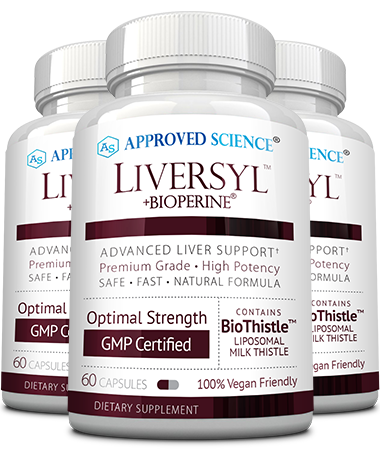Your liver is responsible for processing nutrients from food and beverages and eliminating harmful toxins from the body. It is the body’s natural absorption organ and the primary defense force your body has against minor and major health issues. For these reasons, individuals should do their utmost best to look after their livers. Lifestyle changes, supplements, and better diets are critical to strengthening the liver and preventing fatty liver disease. Now, thanks to recent studies, there is also an argument to be made about receiving enough fresh air.
In this article, we explore the connection between fatty liver disease and pollution. We also discuss everything else that you need to know about the condition, from other causes to treatment plans.
What is Fatty Liver Disease?
Hepatic steatosis, commonly known as fatty liver disease, is categorized by a build-up of fat in the liver (1). An increase in liver fat causes inflammation, which can lead to long-term liver damage or scarring. And, this damage can ultimately contribute to liver failure. According to reports, fatty liver disease affects millions of Americans, and 25 to 30 percent of people experience nonalcoholic fatty liver disease (2). This is just one of three types of fatty liver disease that is caused by an excessive build-up of fat in the liver.
The Three Types of Fatty Liver Disease
There are three types of fatty liver disease that affect individuals across the country. The causes of each, symptoms, and treatment plans for each are fairly similar, however, individuals should work with their general practitioners to tailor a health approach to their specific variation of fatty liver disease. Below, we discuss these three types of fatty liver disease.
Nonalcoholic Fatty Liver Disease
Categorized by the excessive build-up of fat in the liver of individuals who do not consume alcohol. In some instances, individuals may experience simple nonalcoholic fatty liver disease which is a variation of the same condition that causes no inflammation or other complications. Treatment of nonalcoholic fatty liver disease is essential as the condition can contribute to liver fibrosis and more serious liver problems.
Alcoholic Fatty Liver Disease
Alcoholic fatty liver disease refers to a fatty liver disease that is a direct result of unhealthy lifestyle habits and excessive alcohol consumption. If left untreated, individuals can experience scarring of the liver and potentially suffer from liver failure.
Acute Fatty Liver of Pregnancy
As fat build-up in the liver can occur during pregnancy, individuals may experience acute fatty liver of pregnancy. This particular variation is rare, and there is currently little understanding of the causes of this type of fatty liver disease. Typically, it appears during the third trimester of pregnancy and doctors will want to deliver the baby as soon as possible. In most cases, the liver should repair itself and heal following childbirth.
The Link Between Fatty Liver Disease and Pollution
According to a recent large-scale study, “Exposure to air pollution is associated with an increased risk of metabolic dysfunction-associated fatty liver disease” (3). Along with additional research and insights gathered by top medical professionals, many argue that pollutants in the air can accelerate liver damage and lead to inflammation. Animal studies have further contributed to the claim as data indicates a strong uptick in liver toxicity among test subjects that experienced higher levels of air pollution than others. While most would state that long-term exposure to air pollutants is a contributor to fatty liver disease, it is important to note that most major cities experience high levels of air pollution year-round. This frequent exposure to high levels of air pollution is likely to increase the odds of experiencing fatty liver disease as a result of air pollution.
What Else Causes Fatty Liver Disease?
Beyond air pollution, there are several more common causes of fatty liver disease.
- Alcohol Consumption: As alcoholic fatty liver disease is a specific type of condition, it is fairly simple to gauge that alcoholic beverages are a primary contributor to the concern. Alcoholic impacts the body’s metabolic functions, combining with fatty acids and contributing to fat build-up as the liver metabolizes the alcohol toxins (4).
- Obesity: Obesity is the primary cause of nonalcoholic fatty liver disease. Obese individuals often suffer from insulin resistance and high inflammation. These two factors play a role in the body’s ability to process fats in the liver. Ultimately, obese individuals experience a higher rate of fat build-up in the liver than usual (5).
The Symptoms of Fatty Liver Disease
Unfortunately, there are few physical symptoms of fatty liver disease. The most common way that individuals first realize they have fatty liver disease is when more serious liver issues occur, and this is often too late to undergo an efficient treatment plan. If you are concerned that you may have fatty liver disease or just want peace of mind, then you should consult your general health practitioner to conduct an exam or blood test.
How to Treat Fatty Liver Disease
Treatment is the first step to mitigating the risks associated with fatty liver disease. Treatment plans, if managed early on in the development of fatty liver disease, can include simple lifestyle changes to support your overall health and wellbeing. Let’s take a look at some of the best ones below:
Change Your Diet
As with most health conditions, a change in diet can contribute significantly to the reduction of toxins and functions that cause diseases. As obesity is a primary contributor to fatty liver disease, individuals should ensure that they consume a well-balanced diet that aids their weight loss goals. This diet should only include plenty of greens, high-fiber foods, produce that reduces inflammation, and fruits that offer tremendous health benefits. Individuals should also combine their new diet with a regular workout regimen to accelerate weight loss efforts.
Take Quality Supplements
Liversyl™ by Approved Science® is made with clinically-proven ingredients to:
- Promote optimal liver function
- Stimulate cellular repair of the liver
- Enhance the detoxification process
- Support bile production
- Aid digestion and improves metabolism
- Boost antioxidant protection
Containing a unique combination of ingredients, Liversyl™ includes two of the most powerful herbs associated with caring for the liver, Milk Thistle and Artichoke, both of which have been formulated into bioavailable blends: BioThistle™ and BioArtichoke™.
BioThistle™ combines 300mg Milk Thistle Extract standardized to 80% Silymarin, with 150mg of Phospholipids, which synergistically act as an anti-inflammatory, treat liver injury and disease, prevent the build-up of toxins and increase bioavailability.
BioArtichoke™ combines 200mg of Artichoke Extract standardized to 5% Cynarin, with BioPerine®, a bioavailability enhancer to induce faster absorption and quicker results. The powerful antioxidants found in the Artichoke can help to prevent fat build-up in the liver and can increase bile production to remove harmful toxins, supporting both liver health and digestion.
Another antioxidant contained in Liversyl™ that few other supplements contain is L-Glutathione, essential for reducing cell damage and oxidative stress that can cause fatty liver disease.
The final ingredient to optimize liver health is Choline, a vital nutrient shown to boost metabolism and prevent fat and cholesterol build-up in the liver. Choline is produced by the liver, but the body doesn’t produce enough on its own and is very often deficient in our diets, so the high dose provided in Liversyl™ is more likely to help you achieve the recommended intake than the low doses found in other supplements.
Reduce Your Alcohol Consumption
As alcohol is the primary cause of alcoholic fatty liver disease, reducing one’s alcohol consumption is critical to minimizing the risk of developing the condition. For some individuals, this is easier said than done. However, you can use this resource to help you curb your consumption of alcohol (6). In more serious cases, it may be wise to consult a therapist or chat with family and friends about your alcohol consumption and concerns.
Your Takeaway
Recent studies indicate a long-term link between air pollution and fatty liver disease. This is a fairly modern finding concerning a condition that was previously primarily caused by alcohol consumption and obesity. For these reasons, receiving enough fresh air, changing your diet to compensate for fat build-up in the liver, taking quality supplements that reduce inflammation, and reducing alcohol consumption are the most effective ways to fight fatty liver disease and prevent more serious health conditions from developing. Be sure to chat with your loved ones about your concerns, consult your general health practitioner for peace of mind, and make informed decisions to protect your liver.


